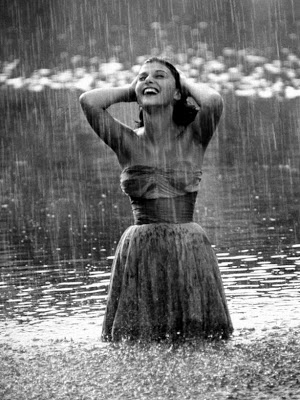Growing Our Psychological Reservoirs.

{source}
It was not until my mid-twenties that I cultivated a love of play and adventure.
Whereas most people effortlessly acquire this curiosity and fondness at a much earlier age, my childhood pursuits were driven by my sense of competition and aspirations for success and recognition. I only really enjoyed an activity if I was good at it or if it felt otherwise productive in some way.
As I continued into adulthood, I found no shortage of goals and duties to fulfill. After years of performing at the top of my classes and working so hard to maintain a polished and practiced persona, I began suffering from inextinguishable migraines, panic attacks, insomnia, anxiety, and depression.
It was then that I discovered that play, adventure, travel, and basic enjoyment of life were no longer optional for me; rather, they became necessary tools for survival. Once I allowed myself a moment to step away from this strictly goal-oriented lifestyle, I instantly started to crave more.
I wanted more time outdoors in beautiful spaces, more time talking to the people I love, more time laughing, dancing, and essentially living a fully embodied life.
Upon returning home from adventures and travels, my memories of the sights, smells, textures, and emotions stayed with me for days, weeks, and sometimes years later. Sitting in a meeting, overwhelmed by my insurmountable workload, I suddenly remembered the taste of ice cream in Reykjavík or the sight of the waves under the moonlight in Big Sur.
I soon learned how to deliberately call upon these sense memories when I needed them most — in traffic or after a particularly stressful workday. This act of intentional recall became my rebellion against the current of psychological detachment that prevails in the modern world.
As soon as I realized the enduring therapeutic power of these experiences, I began to change the way that I approached these moments of refuge. Marcel Proust, who spent the last three years of his life bedridden and devastatingly ill, would famously reflect upon earlier experiences joy as a means to mentally escape the confines of his bed. My strategy is informed by this approach.
Upon acknowledging a privileged moment of bliss, I try to summon all of the mindful intention I can to truly absorb every detail of that sensory experience as it is happening. It’s like snapping a photo, only my camera is comprised of mindful focus and complete embodied presence.
Staring up at a waterfall, meditating in the rays of a mountain sunset, or dancing joyfully among my beloved friends, I acknowledge that these moments are all too fleeting, and that it is my duty to take part in them as wholeheartedly as I possibly can.
And so, next time you find yourself in the sweetness and richness of life’s elevated pulsations, do yourself a favor: put that phone away, put those other thoughts aside, and simply savor the sensory experience of that exact moment in time. Continue to accumulate these moments for storage in your mental and emotional reservoirs. And call upon them often, that you may never forget the healing powers of beauty and play.
***
Dr. Arezou Ghane is a doctor of Health Psychology, dancer, aerialist, and founder of Auteur. Her work bridges her passions for the science of psychology and creative movement as tools for mental and physical well-being. Connect with her via Facebook or Instagram.
***
{Join us on Facebook, Twitter, Instagram & Pinterest}

